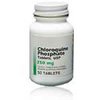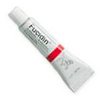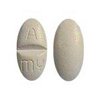 |
Chloroquine
Chloroquine is a medicine used to prevent and treat malaria, a red blood cell infection transmitted by the bite of a mosquito, and to treat some conditions such as liver disease caused by protozoa (tiny one-celled animals).
read more... |
 |
Fucidin
Fucidin cream is used to treat skin infections such as impetigo, infected eczema or infected wounds or cuts.
read more... |
 |
Lady era
Lady era (Sildenafil) is scientifically formulated to provide intense sexual satisfaction for women seeking ultimate pleasure.
read more... |
 |
Toprol XL
Toprol XL is used for treating high blood pressure, angina, and heart failure.
read more... |
 |
Wellbutrin
Wellbutrin (bupropion) is an antidepressant medication. It works in the brain to treat depression.
read more... |









